4rd of January 21
Dear Gloria Anzaldúa,
Ich setze mich an meinen Tisch, in einer kleinen Wohnung in kaltes dunkles Berlin. Als ich spreche, oder ich schreibe, ich sehe dich, im Licht, unter die Sonne, dein Gesicht, deine Haut.
Dein Brief – “Speaking In Tongues: A Letter To 3rd World Women Writers” – war mir 29 Jahre nicht bekannt und ich bin langsam beim Schreiben. Außerdem, du hattest Recht als du es gesagt hast, dass wir Hindernisse nicht überwinden werden, wir müssen durch das Gefahr gehen, hier sagt man “durchbeißen”, wenn ich die Sprache korrekt verstanden habe.
I’m not sure if I should be answering this letter as if you were directing it to me. But right now I don’t know to whom I should direct this. Should I write it to my mom and tell her about you? No, I prefer to do this in person, during a long talk. To my fellow creators I think is pointless since I much rather send them your beautiful letter instead. So I will write this one to you and I will call you by your first name and I will be very respectful.
This is gonna be written in my way of writing German, Portuguese, and English as my mind seems to be trapped in a confusion between this three. I also wanted to appropriate myself with your poetic way of intertwining both línguas maternas.
11th Jan 2021
Today was a grey snowy day. I walk over the bridge on my way to University and think about the words you wrote. Today I made the house very quiet, so I could only hear the old fridge screaming at me to write back to you. I thought it would make me more productive to sit in my yellow lighted desk, surrounded by my crayons, some candle light, shadowed by the plants, and just face the subject that is about to reveal from my writing.
The nakedness I see in your words makes me want to do the same, but I don’t know if I’m gonna like to see my demon of writing. Is not laziness you see, is resentimento. Writing might be one of those things that were denied to me as a brown girl growing up in São Paulo. In such a big place with people who have such big words, where is the space or even necessity to voice my thoughts? At least I used to think like that until I heard about you through Pêdra Costa, the first person to tell me I was an academic.
An academic in German University, a big combination of words that have very little to do with how I would see myself, but I am nobody to disagree with Pêdra Costa, so let me try and get along with it. Here I am, writing to you.
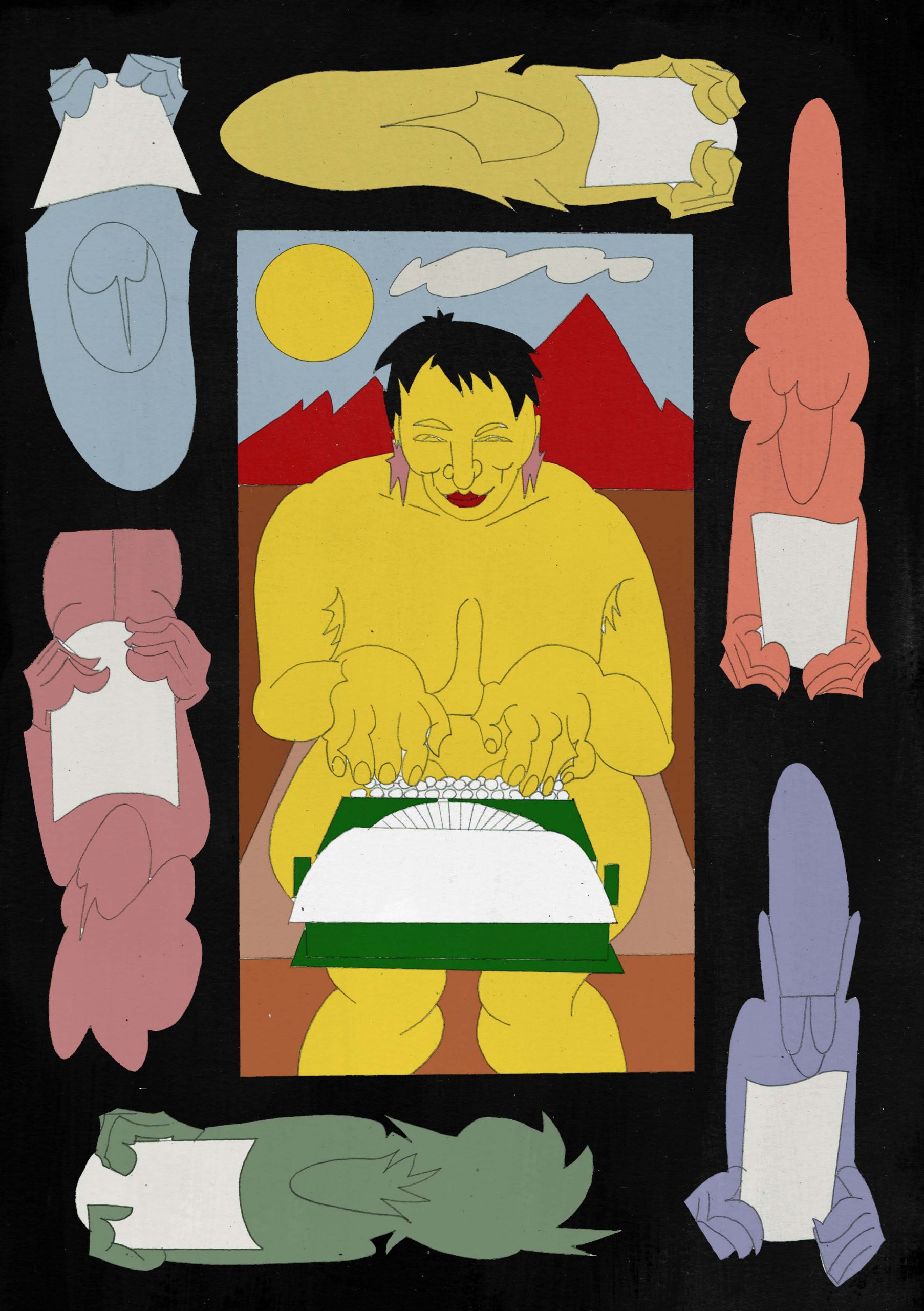
The first time I get in the room is a seminar, the discussion is about Foucault … Auf Deutsch! I am the only person from outside Europe in the class, the only third-world woman, can you imagine my face? As they discuss objectively all the violence I got to know by close and even experienced myself in Brasil and kalte Deutschland.
I think about the access to the education they had growing up. I split, that brown part is acknowledged, as I hadn’t yet reconciled with it. I get transported to my high school, where we were forbidden to get in the library due to the dangerous situation the room was left at, falling apart, piles of moldy books donated by the community. My spine starts to hurt, I can feel my bones shaking, my chest feels like is gonna jump on top of the table, I want to scream and run. I don’t understand myself, I can’t talk this language objectively, I can’t stand their privilege, the absence of others “like me” is violent. Or is it my privilege I can’t stand? Being part settler-colonizer as I am.
Either way, I have visions.
My mother overworking herself, her knees getting swallowed, 8 hours in front of the furniture store, in the loud and rainy city center, trying to catch the next client with her wide smile, her singing accent from Bahia.
Now she stays under the unforgiving sun, breathing warm wet air, selling apartments. She has her business now, dona do próprio nariz, still working a lot but on her own terms. At least I think so, for 6 years our relationship was reduced to a flat-screen, 15 cm x 6 cm wide.
She has nothing to do with simple, my mother is deep, she has the wisdom nobody in the academic world knows how to give prizes to. She knows how to survive a racist patriarchal society, gets her money, does business that would make any wall street gringo’s jaw drop, while singing Caetano, dancing in the kitchen, cooking her beans, and giving the most soul-warming look anybody can ever receive.
To be far from my family because of the system that had made them humans and us something in between beasts and invisible ghosts. I can say it was challenging to face them and to face “them” in me, both the white and the brown. But there is something important about being in the room.
Working as a cleaner for all those years had also made me a stranger to sitting at tables. I miss having all that body movement, I can feel my mind frying from sitting. I remember how it used to be in houses before I started to study, some wouldn’t even imagine to ask themselves, who I was, besides the exotic and servant imaginary I was not worthy of not even a look, or to have my name be remembered. Wake up, put on clothes, breath, put on some Racionais MC’s, jump on that train, go, clean clean clean, time management, discipline, get paid, go back. Next morning all over again. The romanticization of being working class sometimes was toxic, but I confess I still get the chills when I listen to “Deeper Love” from Aretha Franklin. It is almost dangerous how hustling after a while starts to make you proud of yourself. Some people were so evil with me I even started to trip and think I was paying for my ancestors’ sins.
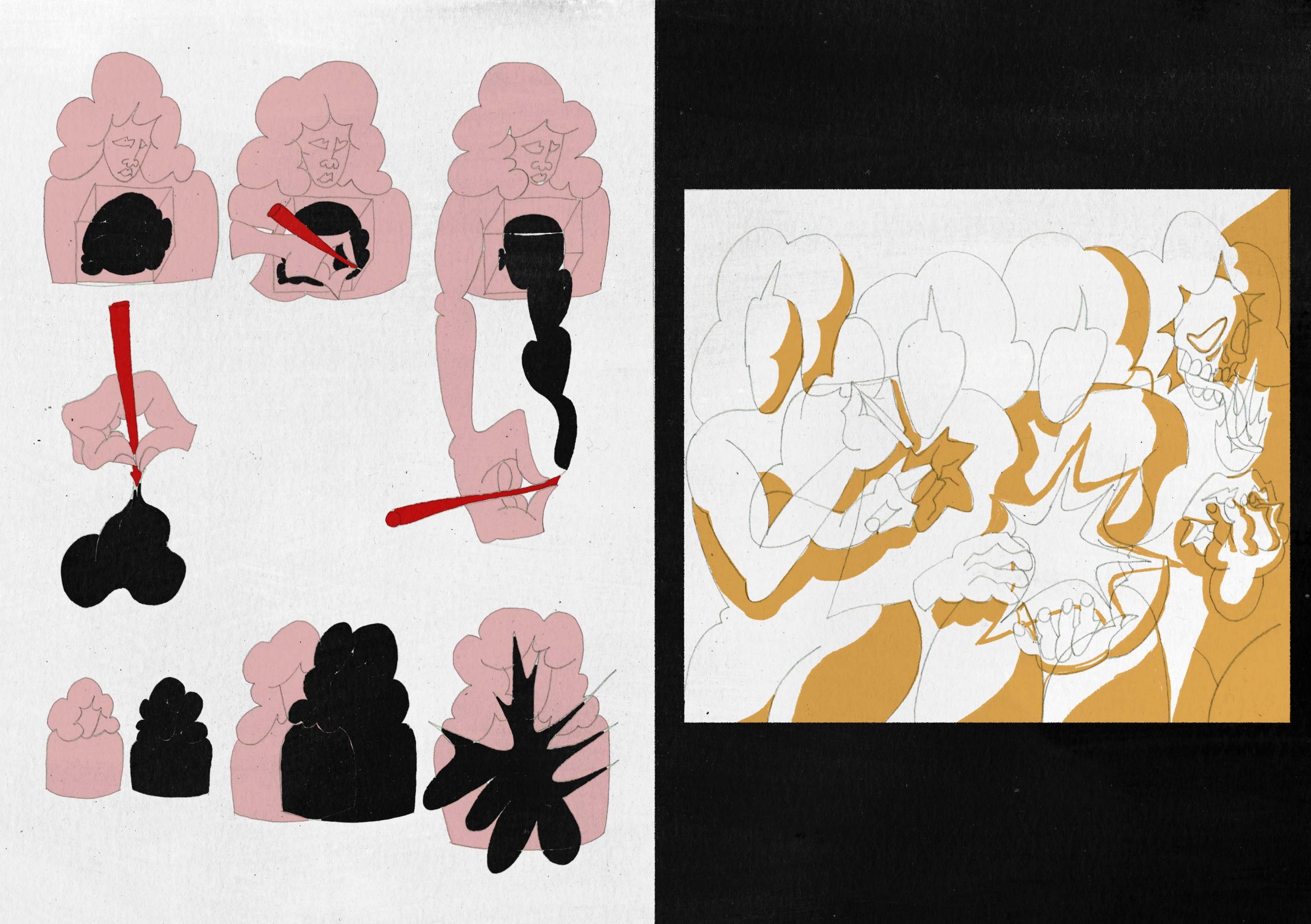
A man even spat on me in front of my job once. But there were also the goody goods, the ones that would ask me my story, I would say I came to study, that I was at UdK, their eyes would go big, the treatment was different from that moment on. I used to feel sometimes like a savior, they would almost “like” me so much, I would get the creeps like they wanted to domesticate me. I was the perfect cleaner, the “educated”, “the-one-that-would-get-them” kind of person. There was a woman in Grünau that would try to get any way she could to book me, she would comment on how I dress, how I look, how I speak, how I study, ask “what made you come to do in Germany?”, she even had the nerve once to tell me I was too skinny, I laugh so hard at this kind of clients, in contrast, they made my life feel so absurdly beautiful in its simplicity.
They could have my time, they could have my physical effort, they could have my talk, my smile, but they would never get my mind, which was jumping around, thinking about 2pac, “It’s just me against the world”, thinking about boys, thinking about drawing, crazy ideas for animations, I created complete long movies in my head, performances, I would think about politics, I loved to look at the shelves, pick their brains, some had some really good books I would take pictures. At every swipe I was rewriting myself, myself for myself, it would happen in my mind, nobody could use it, nobody could judge it, I would imagine myself outside my body. But they would try. The Kalk in the bathrooms, a lap for every specific function, the product smells, I love the one that was Lavanda, the lemon one where disgusting though, the pink for the toilet, the blue for the living room, the yellow for the kitchen.
I also found humanity, the honest and kind hearted people, the ones that helped me analyze my portfolio to get to University, the old lady who invited me to lunch, the one who spoke Portuguese, would give me books, I have an actual feeling of love for them.
The thick skin as you advised is starting to build up. New acknowledgments are appearing from the discussions little by little. To not see everything through the “good or bad” lenses. Violent processes have no other way but violent ways to be dismantled. But affection is a valid way too, afinal “O sorriso é a única língua que todos entendem”. The subject must be geographically positioned and self-criticism is a very important tool.
There is still a lot of work to do, there is so much to grow, to appropriate, to learn. That’s why this letter is still so confused. I want to complement this with drawings inspired by your words.
But there is more. About writing.
Between you and me. Writing might be that one thing that fell down the whole on me, the whole of frustration. That thing that has not been seeing the light of the day, so it is kind of … moldy. Assombrosa. I start to ask myself why when I write I talk so much about myself, I feel selfish. Lacking objectivity. Until I read “Stop the chatter inside their heads”. This gave me the understanding to see that, there is a force in this world trying to tell us who we are and that I have let the image of myself eat me up from inside out way too long. That pain on my spine I talked about, has a lot to do with this chatter, my silence.
So as much as it makes me uncomfortable I have to talk for myself, I can’t talk for all of us, mix raced, traped in between, third world women, migrants, working class. But I can rewrite what being all of that means to me, instead of letting them do the talk.
To me, it is to walk on the gray streets of dreckige Berlin listening to Milton Nascimento and still feel the warm breeze of the ocean on my skin. To get in communion with other “third world” people, complain laughing, while we make up dreams of a comfortable life working with whatever we want. Is to love to work, por a mão na massa, to make my money, to surprise myself with how far I can get without stepping on others, which, knowledge has led me to believe that this is actually an everyday failure.
Is to look back at my ancestors, to be connected to the spirit of my creole grandpa and my indigenous grandma putting me back on track, to keep trying to find ways. There is nothing romantic about that but somehow I still manage to write as if it was. Inferno!
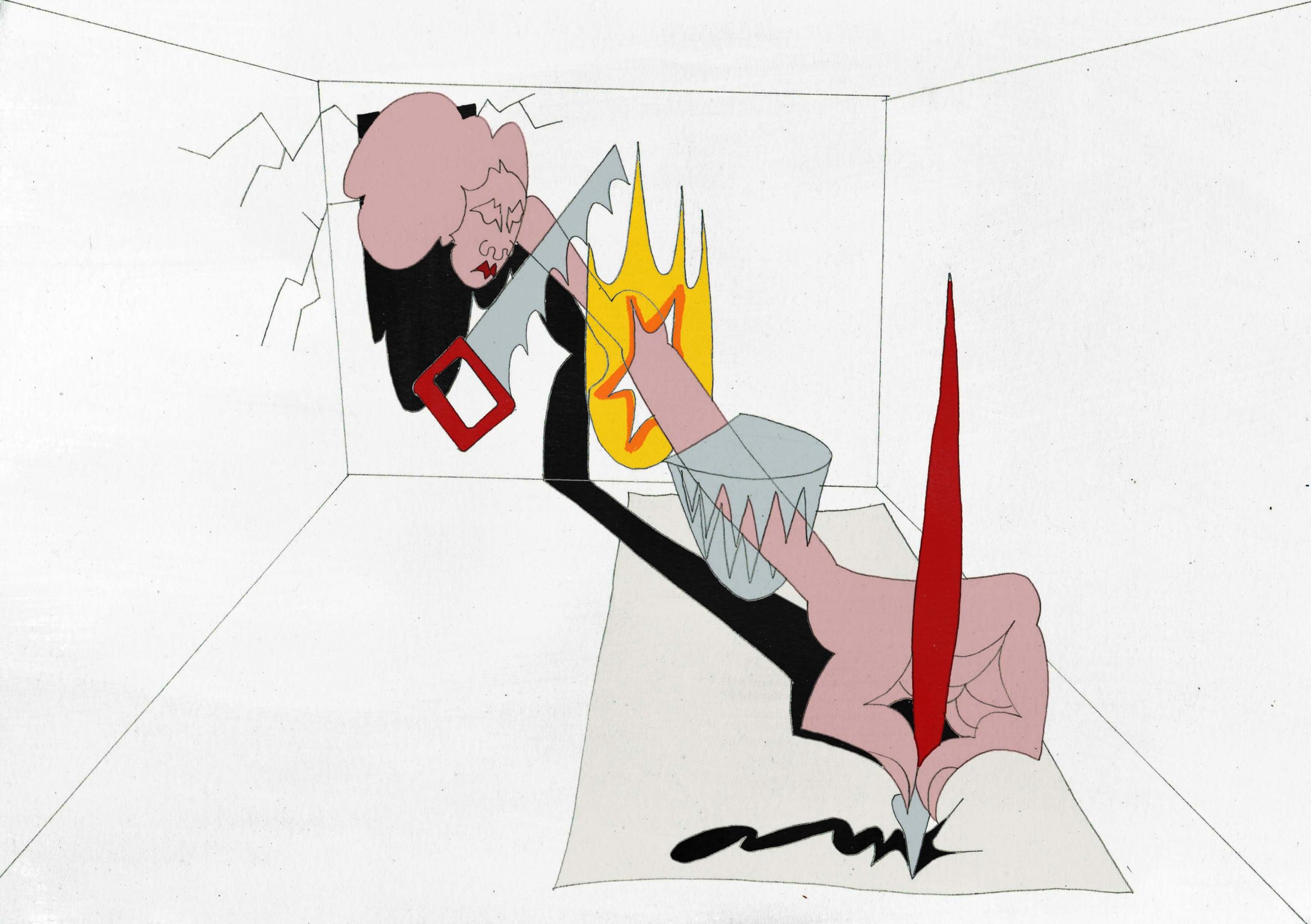
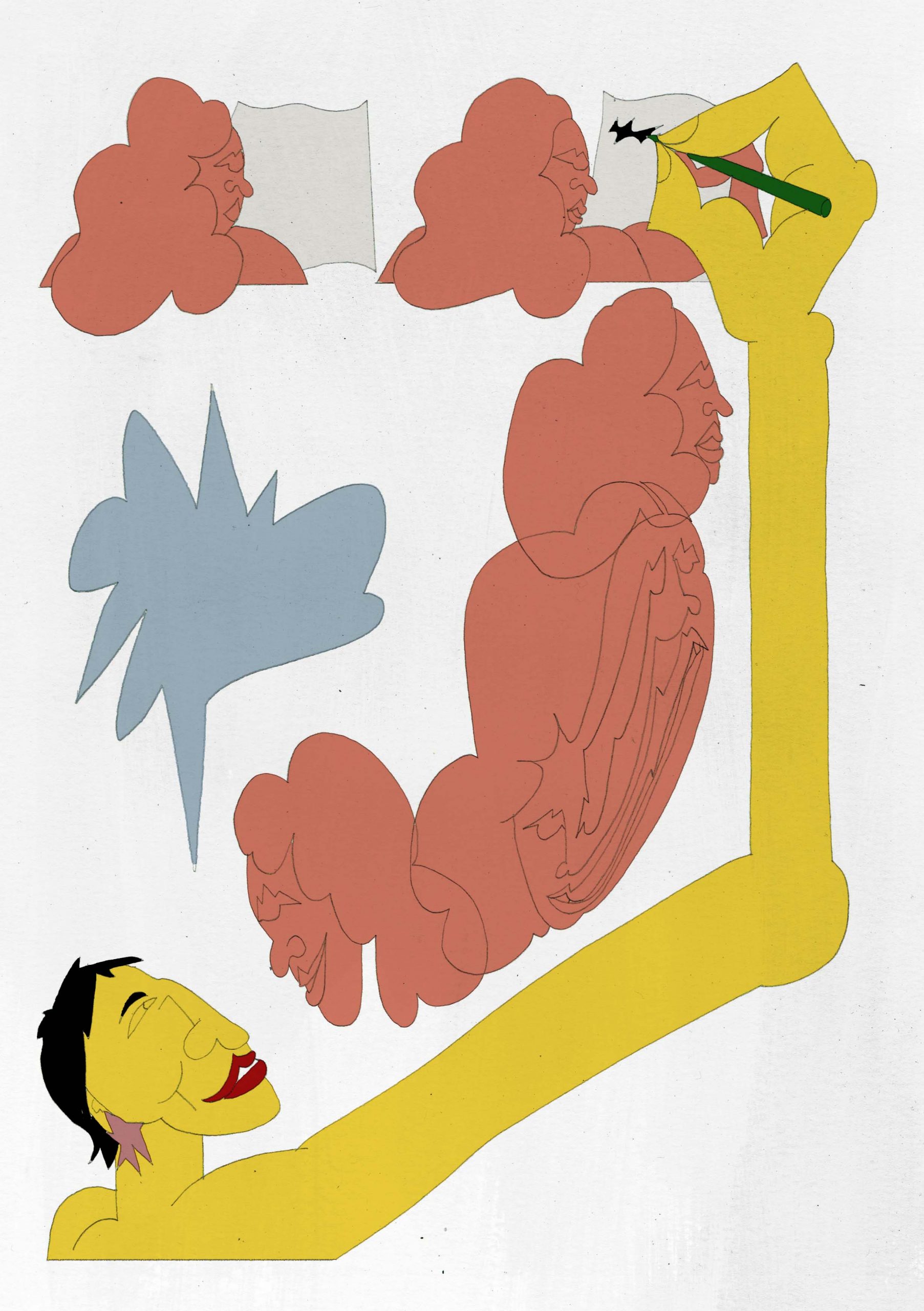
25 de Janeiro 2021
I see your words as a kind of magic. There are symbols and metaphors you use to describe the feeling. Like that Tiger on the shoulder. Your hand coming from miles away and grabbing the hands of other writers as you clench the pen in togetherness. To write cooking a dinner. To empty oneself.
This is the way I feel when I draw. This is the way I relate to reality and it has its language. Sometimes it gets stuck in places where only the water that passes over bridges can reach to make it flow. The water with your words. I keep digging it up. The wind you blew yesterday is feeding the fire in our tongues today.
With love,
Thaís
This letter is an answer to the text “Speaking In Tongues: A Letter To 3rd World Women Writers” written by Gloria Anzaldúa, and published in the book “This Bridge Called My Back” (1981) edited by Cherrie Moraga and Gloria Anzaldúa. The letter was written during the Seminar “Seeing ourselves clearly” with Pary Beata El-Qalqili during the Winter Semester 2020/21 at the Berlin University of the Arts.
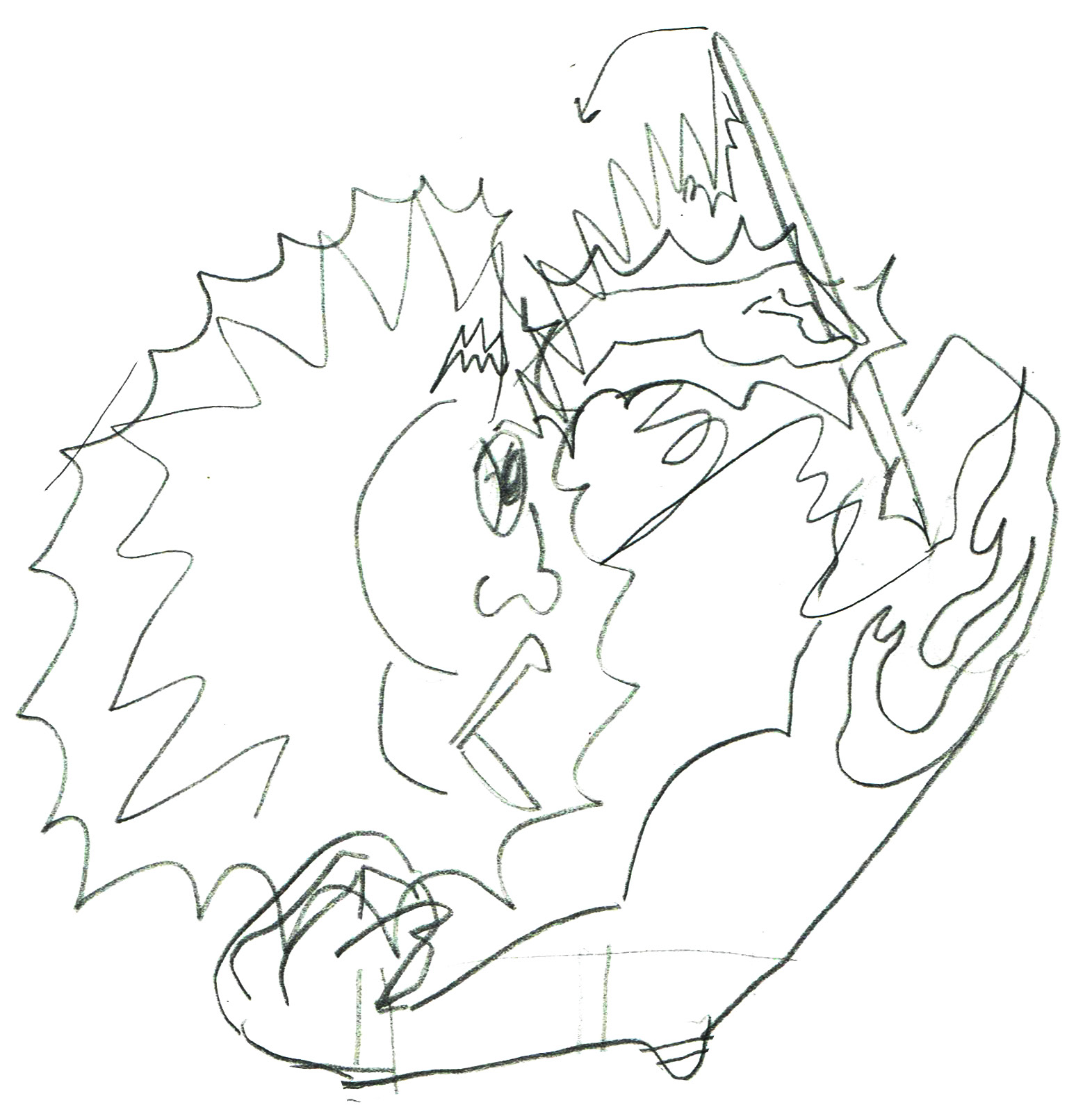

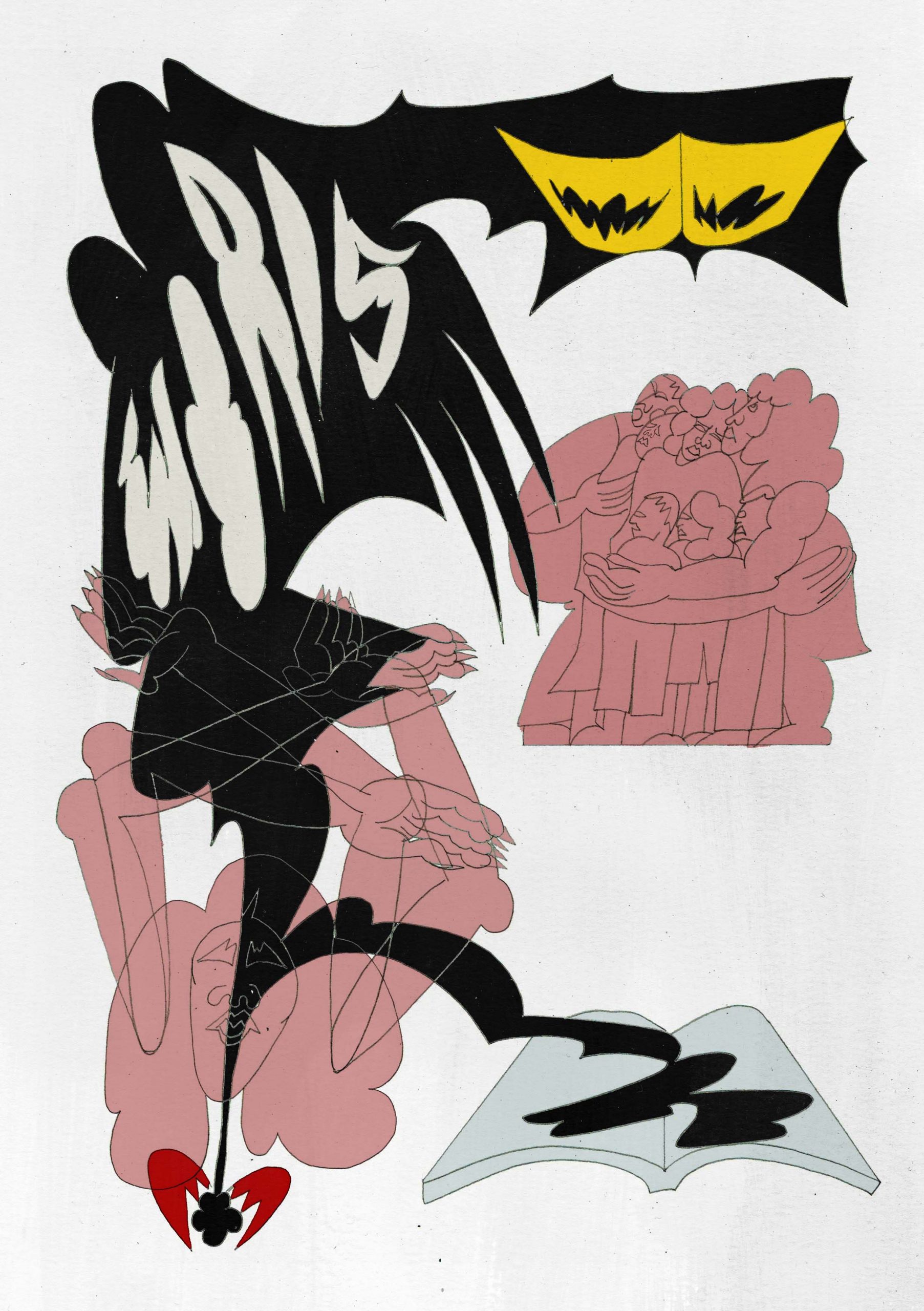
I am so happy to have found this letter-art. Thank you for putting it into the world so that the spiritual kin Anzaldúa wrote about can connect with your words and images and be encouraged. Thank you for the teachings.